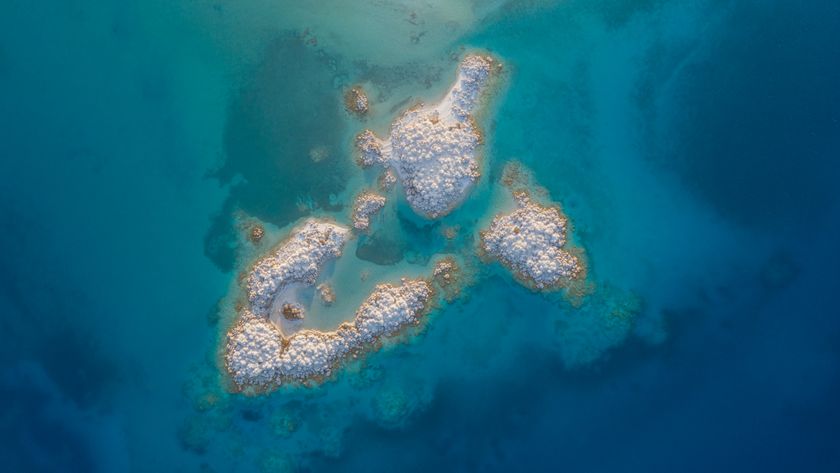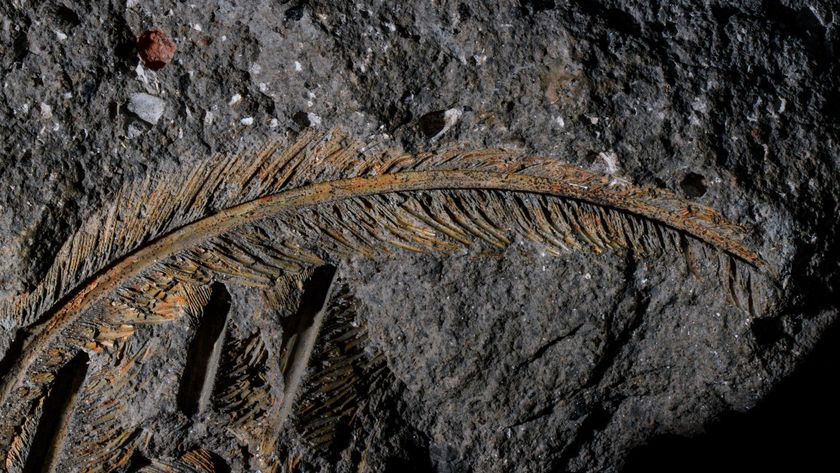
Uncharted Territory: Climbing Untouched Mountains
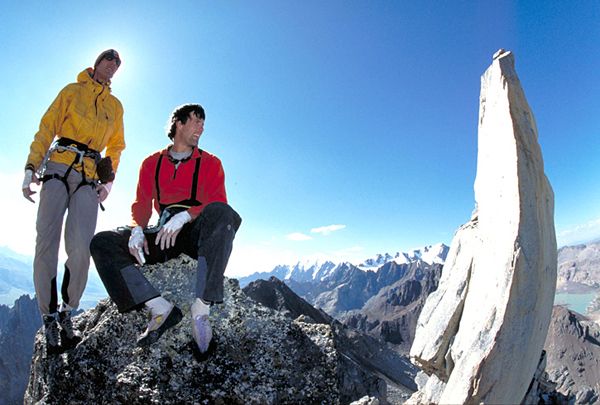
Mark Synnott's mission is simple: to go up mountains no one has gone up before.
The 41 year-old mountain climber has scaled hundreds of peaks, including many that had never been touched by humans before. Synnott says the planet is filled with such undiscovered places, and has made it his goal to seek them out and explore them.
Synnott, a longtime member of the North Face athlete team, has led many expeditions for National Geographic, and runs the Synnott Mountain Guides school in Jackson, N.H. OurAmazingPlanet talked to the adventurer about breaking new ground, taking risks, and reaching the top.
OurAmazingPlanet: What's the first place you ever went to that no other person had even been to?
Synnott: Baffin Island, in Arctic Canada. We were in fjord land, way out in the middle of nowhere. For sure the Inuit had been there, but we found all these cliffs and nobody had ever climbed those. That was where I found my uncharted territory, was up on these walls. [On Ice: Stunning Images of Canadian Arctic]
On the one hand it's kind of absurd to even want to do something like that. But I have had this feeling sometimes, and on that one in particular, this super strong feeling like, yeah, I'm supposed to do this. I don't really know exactly how or where that comes from. When you feel it, it's usually something that you should bite on to and not let go.
OAP: Was there a particular place that sparked your whole mission to explore unexplored places?
Sign up for the Live Science daily newsletter now
Get the world’s most fascinating discoveries delivered straight to your inbox.
Synnott: There was a spire out in the Himalayas which is called Nameless Tower — that was the one where I saw the picture of it, and I thought, 'That's it. That's what I've got to do. I am going to climb that thing no matter what.'
And here's the funny thing: It led me on this whole crazy journey, and I haven't done it yet. I went there to do it, and when I got there I found out there was this other one next to it that I didn't know about that was even better, so I did that one. And that original inspiration is still sitting there, and I feel like I need to make that happen before I'm all done.
OAP: How do you find places no one has ever been to before?
Synnott: That's one of the hardest parts. I think there's a lot of people who don't realize that these places actually exist. It starts at home, whether you're on Google Earth at your computer, or reading old books for clues that are going to lead you in the right direction.
So there's this whole huge process of planning and scheming that goes on beforehand, which is a really important, integral, cool part of the adventure. [Top 10 Least Visited National Parks]
OAP: What does it feel like when you finally become the first person to set foot somewhere?
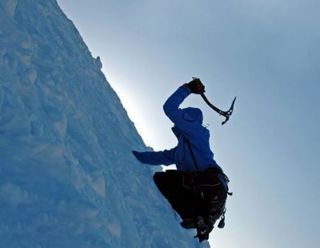
Synnott: You end up in a place that you dreamed about being. How does it feel when you have your dream come true? Because that's really what it is. A lot of dreams that people have in life, they can be intangible. The really cool thing about adventure and mountain climbing in particular, is this is a real thing. When I get there, there's the cliff, and you grab on and start pulling yourself up.
I've had experiences where I saw a picture of a mountain, and I've found out about it, and I'm like, 'OK, nobody's ever been on this one before.' Then I'll put a picture of it up over my desk and I'll look at the picture, and often times a little feature comes out and you're like, 'I think that's exactly where I'm going to go. I'm going to end up on this ridge over here.' You start picturing it in your mind, and you go through this whole process, and you eventually find yourself there. You're actually in this place that you dreamed and you imagined yourself being in, and it gives you just this incredible feeling of what I would call self-actualization.
You realize that even though there's all kinds of chaos in the universe, and we're all kind of along for the ride, you can use your realm as a human being to craft the world and your experience of it into what you want it to be. And that just fills a human being with an incredible feeling of strength and inspiration, to know you're not just a speck of dust getting blown around by the wind. You are, ultimately, but at the same time you're contouring your path.
When you read about all these great inspirational explorers, you can kind of trace that through as the common thread. When you hang out with people like that, they give off a certain aura that feels good to be around, there's a certain kind of enthusiasm and contagious cool feeling you get from being around people like that, 'cause they're inspired.
OAP: How do you balance your desire to do this against the risks that seem inherent in climbing untouched mountains?
Synnott: When I was a kid, I remember asking my dad what happens when I die, and my dad said, 'You're worm food. Nothing.' I'm like, 'OK, well at a certain point I'm not going to exist. So this is it, this is what I've got, and I've got to make the absolute most of it. I'm going to live my life as fully as I possibly can.'
This varies for different people, but for me, living my life to the absolute fullest is going to mean taking some risks. And I can't really see any way around that. [7 Most Dangerous Places on Earth]
The interesting thing is that your tolerance for it changes as you grow older. When you're young, you say, 'I'm going to die anyway so I'm just going to go for it.' But as you get older, you say, 'Yeah, I'm going to die anyway, but I think I should hold off on that as long as I can.' You realize how precious every little kernel of the time is, and then you end up having children, and you need to be there to support them.
OAP: Have you ever been in a situation where you weren't sure you were going to survive?
Synnott: Yeah, I've had close calls. I've had avalanches and rocks fall and ice falls. I had one time where I was hanging on a rope, and about half a dozen rocks the size of television sets came down right at me, and I was swinging back and forth on the rope to dodge them, and one was going this way and another was going this way.
It's a hard thing to kind of wrap your head around because it's really hard to imagine yourself getting wiped out and not existing. You really try to use your intuition and what we would call mountain sense, to make sure that you're not in the wrong place at the wrong time.
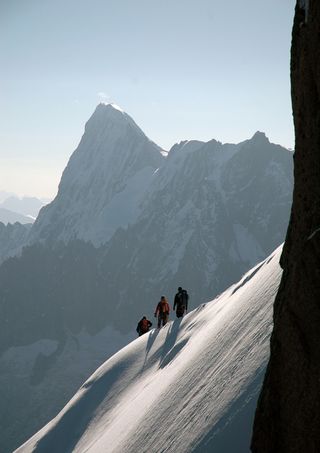
OAP: You've climbed so many mountains. Does one stick out?
Synnott: People always ask, 'What's the coolest one?' I think all these guys would say, there is no one, not even remotely, because every cool place in the planet is unique and special in its own way. You can have some personal favorites, and there's moments that stick in your mind, but a lot of times it has more to do with the companionship of the person you happen to be with.
Some of my coolest trips have been ones where there's been very little climbing. I did this one expedition to Pitcairn Island, which is in the South Pacific. It's where the mutineers from the Bounty went, way back in the day. I came up with this idea: we're going to do the first ever climbing expedition to Pitcairn Island. We had to sail there, 'cause there's no other way to get there. We had a total epic, sailing through these gales and everything, and we finally got there, and the descendants of the mutineers and their Polynesian wives still live on Pitcairn Island. And we stayed with those people in their homes, and as it turned out the cliffs were terrible for climbing, so I did virtually no climbing, but it was one of the best adventures that I've ever done in my life.
And I didn't discover it. People already live there, they know all about it, they know every little nook and cranny. But I discovered it for myself.
OAP: Why is exploration so important to you?
Synnott: I think that exploration is about discovering things that haven't been discovered in the world, but it's also about discovering yourself and figuring out who you are and what it is exactly that makes you the person you are. Setting up these super difficult challenges for yourself tests you and it pushes you really hard sometimes mentally, physically and emotionally in a way that you don't experience in your normal everyday life. That very often reveals things about your character and your personality that you never would have known about.
It doesn't have to be mountain climbing or any physical adventure — it could be purely mental, it could be anything — as long as it's something that you're super passionate and inspired to do.
OAP: What's next on the adventure list for you?
Synnott: I've never been to the Middle East, so I proposed a trip to explore an uncharted area of the Middle East. I'm at this cool point now where I've done so many trips and adventures that when it's time to pick the next one, I get the globe and I just spin it around. I'm looking big picture, like where would be cool to go?
You find these uncharted places all over, and that's kind of like the dirty little secret, that there's a lot of unexplored terrain still out there. You know, space and the ocean, those are virtually untouched. But the Earth itself has places where I'm pretty sure no human being has even been. That's kind of a crazy idea.
Everybody in the world just about, when you tell them something like that, they get sort of this gut feeling. I feel like we have this explorer's gene. There's this innate thing inside all of us; it's part of who we are as human beings, and I think it's something that I can feel inside of me and I know that everybody else has it too.
This story was provided by OurAmazingPlanet, a sister site to Live Science.

